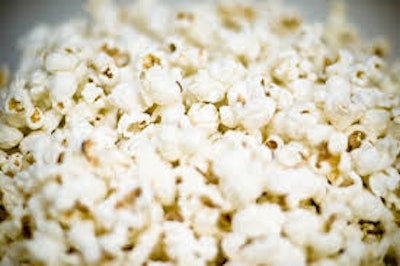
 Perhaps famed New York Times journalist Nicholas Kristof should start reading The Washington Post.
Perhaps famed New York Times journalist Nicholas Kristof should start reading The Washington Post.
Last week, he would have discovered yet another article pointing to the questionable “scientific” studies peddling sensationalist headlines, and the sloppy reporting by journalists who fail to think twice about whether a “study” or assertion is credible and newsworthy before sharing it with the world.
To be fair, most journalists are not scientists, and they are under tremendous pressure to rapidly produce copy and develop click-bait-worthy headlines. However, Nicholas Kristof is one of the worst offenders — and yesterday, he was back at it again.
Kristof’s latest piece peddles scary assertions about pizza boxes and popcorn that can only be referred to as half-baked.
Kristof makes one bogus assertion after another about fluorinated chemistry, referred to as PFAS. He goes on to attack bipartisan efforts to reform chemical regulation using talking points from extreme activist groups that are working to undermine the progress Congress has made toward reform.
So, let’s set the record straight.
First, chemicals are regulated today. We all agree that chemical regulation needs to be updated, but equating the marketplace with the ‘Wild West’ is nothing more than an attempt to scare people.
Second, Kristof’s claim that there are more than 80,000 chemicals for sale that haven’t been tested is simply untrue — also a scare tactic.
Third, the bills to reform chemical regulation pending in both the House and Senate are the products of years of negotiation. They are both strongly bipartisan: the Senate bill has 20 Democrat and 20 Republican cosponsors. To dismiss these bills is to essentially endorse the status quo.
Fourth, the chemicals Kristof highlights, PFASs, are some of the most robustly studied new chemicals and have been determined by regulators to be safer than their predecessors while still offering unique benefits like durability and stain, water and heat resistance, that have become essential in many modern applications. Government and industry have worked together to advance these safer chemicals and continue to collaborate to phase out the older chemicals globally. Want to read more about the studies, data and benefits on PFASs? Just visit http://www.fluorocouncil.org/Resources/Research?.
Fifth, the Madrid Statement cited by Kristof is not science. It is the opinion of a group of coordinated activists with a broad ranging policy agenda.
With his latest piece, Nicholas Kristof veered off course and landed in the company of sloppy science reporting. It would be wise to stick to what he knows, not what he thinks – and certainly not what he thinks he knows about science or chemical regulation.
This article originally appeared on the American Chemistry Council's blog site.






















